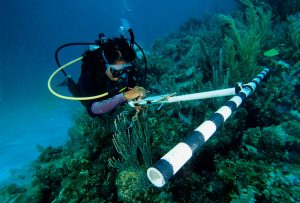Last year was something of a milestone for bilateral, multi-level diplomacy on sustainable trade between Brazil and China, and the start of a new chapter in their dialogue on agriculture’s links with biodiversity conservation and climate change.
The year saw the Global Environmental Institute (GEI), a Chinese civil society organisation with which I work, launch partnerships with several Brazilian public entities to facilitate on-the-ground, cross-border initiatives that nurture good governance and sustainable trade practices.
In March 2022, GEI signed a memorandum of understanding (MoU) to cooperate on sustainability initiatives with parties from Mato Grosso, the west-central Brazilian state that is the country’s leading producer of both beef and soy. An agreement was also signed with the Legal Amazon Consortium, which brings together nine Amazonian state governments on sustainable development initiatives.
Concrete actions are now being explored following these agreements. These include the ‘green passport’ protocol for beef products, under which a pilot traceability system is being designed, which aims to provide sustainability information on Brazilian beef products to consumers in China using barcodes on food packages.
Through carrying out technical research, fieldwork, policy analysis and pilot design, there are four aims for this partnership, which brings GEI together with the state government and the Mato Grosso Meat Institute (IMAC), a beef-focused research and technology institute.
First, the partnership aims to guide the socio-environmental responsibilities of business stakeholders; second, to help Brazilian entities understand the market in China for sustainably produced quality beef; third, to evaluate the feasibility of distributing such products in China, and potential market-based and financial mechanisms to promote them; and finally, to analyse the establishment of traceability schemes in administrative, regulatory and institutional terms.
Traceability is a tool that all actors along a supply chain can champion, but also a process that requires transparency, information disclosure, trust-building and sustainable practices. Done well, it can bring benefits throughout the chain, encouraging openness and adding value that can position products at a premium price. This can also help to promote traceability for sustainability as a broader change within the industry.
However, it is challenging to construct cross-border traceability systems as a tool to address deforestation linked to beef production. Firstly, it is technically tricky to track the movement of animals in Brazil, given the notoriously complex and indirect supply landscape, in which cattle are regularly traded among ranches at different stages of their growth. It is also time-consuming to connect and standardise traceability systems for international trade, in order to establish authoritative, harmonised systems that are not one-size-fits-all – and which are ultimately business-friendly to small and medium-sized enterprises in both China and Brazil.
Nonetheless, given the potential benefits of meeting this challenge, the partnership has set a path to facilitate the development of strong public policy in the state of Mato Grosso, and to foster a niche market for traceable, higher-quality meat products in China.
Green passport: traceability and public policy
An important sustainability initiative arising from the new partnerships is the development of Mato Grosso’s ‘green passport’ for beef products, launched in 2022. As well as planning the workings of such a labelling system, a key challenge is to bring about innovation that can help verify and spread the use of socio-environmental traceability standards across the state’s livestock sector.
The initiative plans, firstly, to supervise and empower the sector, helping businesses to engage with and access traceability schemes, so that verifiably socially and environmentally benign beef can attain the green passport label by 2026. Secondly, it aims to classify carcasses and designate those deemed to be of ‘superior’ quality. It is thus a means for both realising the state’s responsibilities of environmental governance, and for inspecting food quality.
It is an ambitious initiative, and potentially a breakthrough, as the state government will target both direct and indirect cattle ranchers, and aims for it to ultimately be a state-wide programme involving all producers.
From 2026, if producers and slaughterhouses’ activities and purchases fail to meet green passport standards – for example, in being linked to deforestation through their suppliers – they will face restrictions on their future transactions. Cattle purchases will be limited to as low as 20% relative to their last transaction (i.e. two cows versus ten), until they satisfy the programme’s socio-environmental criteria. In this way, it is hoped that verification of their transaction records can help to influence and improve the activities of indirect suppliers.
The green passport protocol is being jointly devised by two of the MoU partners – the state government of Mato Grosso and IMAC – together with the Amazon Environmental Research Institute (IPAM). Other public entities have since joined, including the Federal Public Ministry of Mato Grosso, and the state secretariats of the Environment, and of Economic Development.
Industry groups such as Mato Grosso meatpackers union Sindifrigo-MT, and breeders’ association Acrimat, have also entered the partnership, as well as business stakeholders, including meat processing giants JBS and Marfrig.
The protocol is built on a solid foundation of national and sub-national regulatory frameworks, incorporating, among others: the Forest Code, a law requiring Amazon landowners to maintain a proportion of their land as forest; the Protocol for the Monitoring of Cattle Suppliers in the Amazon (BeefonTrack), which standardises the monitoring of animal origin and auditing in a number of slaughterhouses; IMAC’s Reinsertion and Monitoring Program, a platform for monitoring environmental remediation on farms that have engaged in illegal deforestation; and the Mato Grosso state law that established IMAC and outlined its responsibility to promote sustainability in the beef sector.
This fusion of regulations helps to bridge federal and regional initiatives, fostering positive synergies in a strategic and cost-effective way. Accordingly, the protocol takes into account contemporary Brazil’s agricultural development and plans, and evaluates the environmental assets held by individual farms, through assessing their recovery of degraded pastures and/or irregularly deforested areas while enhancing productivity.
Moreover, taking advantage of the BeefonTrack monitoring system could help to spread and hopefully normalise the practice of tracking illegal deforestation among producers. This high degree of policy compatibility means that cattle producers may bear lower costs to adapt to newer and evolving policies. It also increases the opportunity to extend this sort of “verify-to-qualify” programme beyond Mato Grosso to a nationwide verification system – and thus enables the possibility of re-positioning the identity of Brazilian beef.
The protocol is also a timely initiative to prepare producers to smoothly connect with certain new regulations in consumption markets, such as the European Union’s deforestation law, which aims to prevent commodities grown on deforested land from entering the bloc.
In addition to the green passport, the Mato Grosso state government is also developing legally binding instruments for implementing verification of sustainability standards, designing financial mechanisms such as tax incentives, and developing monitoring and data platforms to identify responsible producers, to enhance their credibility and visibility.
Potential links with China
To support these sustainability endeavours, in May 2023 GEI took part in a field trip across five cities in China, organised by the Mato Grosso state government. The organisation acted as a bridge-builder and guide for Brazilian supply chain actors, helping to map the potential trade paths for verified traceable products from Mato Grosso to reach consumers in China.
There were concrete outcomes from the fieldwork, including GEI and IMAC’s signing of MoUs with meat industry associations from the cities of Tianjin and Chongqing. These aim to promote data sharing and stable multi-stakeholder trade, among other goals. Tianjin Port handled over one-third of China’s total imported goods in 2022, while Chongqing has a huge demand for frozen beef as a key element its most famous dish – hotpot.
The trip also facilitated engagement with certification, financial and customs bodies in Beijing, and promoted government-to-government and institutional-level dialogues. These also analysed the integration of sustainable markets, looking at issues such as fiscal incentives and reciprocal trading agreements, among others.
These in-depth conversations make it apparent that both countries are at the beginning of mutual understanding and reaching a common discourse on sustainable agriculture, which is “carbon-neutral” and “low-carbon” to Brazil, but may have more of a focus on “green” and organic food for China. Technically speaking, it is not straightforward to transfer and translate Brazilian certification initiatives into China, as both apply individual systems to evaluate sustainable products. It is thus not easy to quickly integrate the established sustainable markets from both sides and acknowledge respective good agricultural practices.
Limited bilateral diplomacy and cooperation in recent years has meant that China’s attention to Brazil’s sustainable agriculture has been concentrated only on the international mainstream issue of deforestation. Additionally, Brazil’s rich policy and on-the-ground experience – be it the integration of forestry and livestock systems, or the agricultural intensification that has seen it transition from a net importer 50 years ago to today sharing the responsibility of feeding the world – are not well known in China. For the two countries’ joint interests such as poverty elimination, alternative livelihoods and digitalisation, conversations are far from structured.
The image of Brazil’s agricultural sector as being not environmentally friendly has gradually spread in China. This would not help with the promotion of Brazilian initiatives such as the green passport. It is therefore extremely urgent for both countries to communicate and cooperate on innovative approaches to reverse the harmful impacts of Brazil’s beef sector, and to improve its bad image.
It is a priority for Mato Grosso to proactively engage with China and share each other’s strengths. This engagement could make a significant impact in filling loopholes and gaps in the Brazil-China relationship, overcoming challenges in accessing information, building dialogues between both countries, and helping to grow the presence of Brazilian organisations in China.










